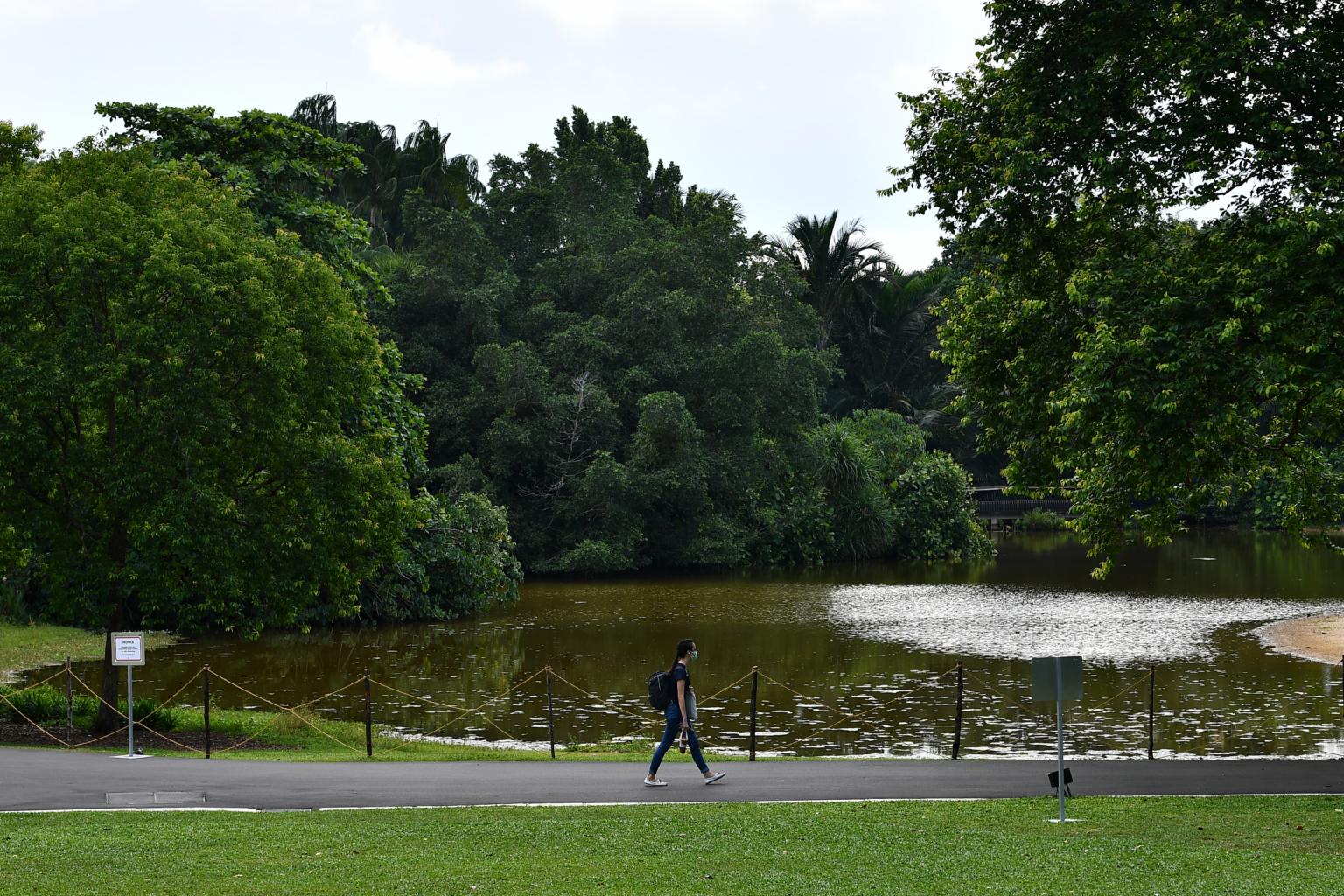Singapore's Green Plan offers new jobs and economic growth
Sign up now: Get ST's newsletters delivered to your inbox

The Green Economy aims to seek green growth opportunities to create new jobs.
PHOTO: ST FILE
SINGAPORE - Jurong Island will be a sustainable energy and chemicals park by 2030 as part of Singapore's push to make industrial production processes and energy usage greener and to improve energy efficiency.
The Republic also aims to develop itself into a sustainable tourism destination as well as a carbon services hub and a centre for green finance to facilitate sustainability efforts in Asia.
In a statement announcing an inter-ministerial Green Plan on Wednesday (Feb 10), the Government said Singapore's sustainability efforts will bring new business opportunities.
The Green Economy, one of five key pillars of the new Green Plan, aims to seek green growth opportunities to create new jobs, transform Singapore's industries and harness sustainability as a competitive advantage, the statement said.
This also entails ensuring that new carbon-intensive investments brought into Singapore are among the best in class in terms of carbon and energy efficiency.
Other initiatives include strengthening Singapore as a location for both global and local companies to develop new sustainability solutions for Asia through research and development in areas such as sustainable packaging, decarbonisation, waste upcycling, urban farming and water treatment.
New technologies for carbon capture, utilisation and storage will be developed and trialled, and the potential of low-carbon hydrogen and other emerging technological approaches to decarbonisation will be studied.
The Government will also support local enterprises to adopt sustainability practices, solutions and standards, enhance their resource efficiency and tap new business opportunities in sustainability, the statement added.
The Green Plan is spearheaded by the Ministries of Education, National Development, Sustainability and the Environment, Trade and Industry, and Transport.
The Government has also reiterated its plan to review the carbon tax by 2023, a move that MPs on both sides of the aisle in Parliament have strongly supported.
During the debate on a motion calling on the Government to bolster its climate efforts on Feb 1, many MPs called for the carbon tax to be raised significantly and for the review to be brought forward.
Kebun Baru MP Henry Kwek, who spoke during the debate about how Singapore can help other countries reduce their carbon emissions, said the initiatives announced in the Green Plan are bold and will be impactful.
"I look forward to a sharp debate on the Green Plan in the upcoming Budget season," he said, adding that he was encouraged by the announcement of the Green Plan Conversations with members of the public that will "bring everyone into the fold", build trust and rally Singaporeans to change the way they live.
On the plan to make Jurong Island more sustainable, Mr Kwek said it would be "overly simplistic" to see Singapore's petrochemical sector solely as a carbon emitter.
"We must also consider that if our petrochemical companies exit Singapore to minimize cost, it is quite possible they will move to a different location with even less robust carbon emission standards," said Mr Kwek.
"A balanced approach will be to acknowledge that Singapore provides essential manufacturing services, including petrochemicals, to the rest of the world, and the way we discharge our duty is to ensure that our petrochemicals companies achieve world-class energy and carbon efficiency."
Mr Anders Nordheim, senior vice-president of Asia Sustainable Finance at the World Wide Fund for Nature Singapore (WWF-Singapore), said Singapore is well-positioned to be a hub for green finance and the issuance of sustainability-themed securities given its robust banking sector and large asset management sector.
But Mr Nordheim said the Republic will face fierce competition in its bid to become an Asian green finance hub from Hong Kong, which launched a strategic plan on green finance in December last year. The Hong Kong Monetary Authority has also been issuing green bonds since 2019.
"Hong Kong also plans to leverage ties with Mainland China via the Greater Bay Area Green Finance Alliance, for instance, which will further enhance its competitiveness as an Asian green finance hub," said Mr Nordheim.
He added that expertise in sustainable finance is increasingly in demand in the Asia-Pacific region, so Singapore will have to compete with regional financial hubs to attract the necessary talent.
"It will be crucial to continue upskilling Singapore's existing finance sector professionals on sustainability and sustainable finance, as well as to develop a pipeline of new talent in Singapore's universities that can help offset dependencies on foreign talent."
Mr Nordheim further said that scientifically robust and internationally-accepted standards for carbon credits and offsets will also be necessary as Singapore pursues its goal of becoming a carbon services hub to ensure its efforts actually contribute to climate mitigation.


